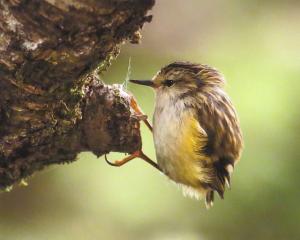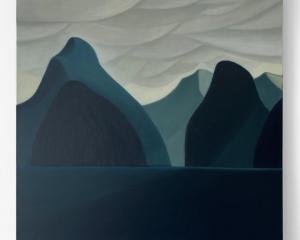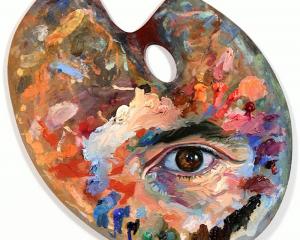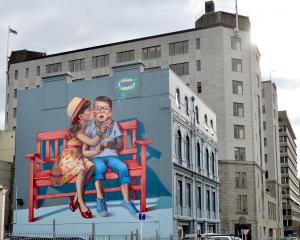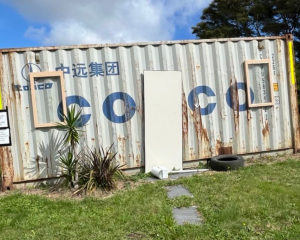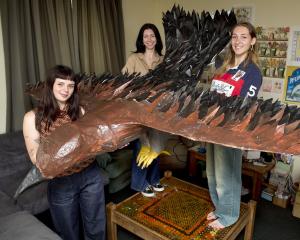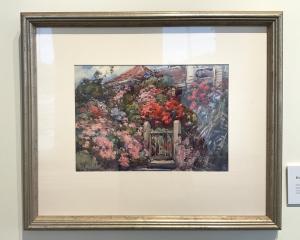He's talking about the Southern Sinfonia's concerts on Saturday and Sunday next week when Briton Michael Collins, one of the world's leading clarinettists, will play Mozart's Clarinet Concerto.
After a concert at Wigmore Hall, London in February this year, Collins was described by The Times as "one of the best clarinettists walking the planet ... The speed and elegance of Collins' dynamic shifts took the breath away: from thunderous fire to milky calm in a split second. His poise, agility, pitch security, colour range: no faults anywhere."
Besides Mozart, works by Bach and Beethoven feature in the programme, but among these old favourites, a new work by Chris Adams, 2010 and 2011 Mozart Fellow at Otago University, will be given its first performance.
Called Symphonic Dances, the 10-minute piece has a strong rhythmic drive and a lot of contrast, Adams says.
"It draws on a whimsical view of old-style dances - sort of peasant dances, the rite of spring - it's a kind of cultivated rustic barn dance in a formal setting. I suppose it's looking at medieval dance through rose-tinted glasses with a 20th-century conception of it." The piece grew from a song he wrote last year, a setting of a 16th-century text, French gossip song je ne l'ose dire (I won't tell).
"Then it moves into this more mysterious section where there's a whole lot of hocketing where different people play different notes alternately so you end up with the beautiful texture that evolves out of single notes and gradually becomes more and more complex."
The strings return with a new melody, then there are fast and furious sections interspersed with calm interludes, he said.
Unlike some modern music, he says his is not confrontational.
"It has a sort of intent to it, but I don't think it alienates. It has a strong sense of what it's trying to say but it's not modern for the sake of being modern."
Adams draws his inspiration from many things. Some of his pieces have been influenced by the environment and particularly the environmental degradation New Zealanders are facing, and others have been inspired by frustration with politicians like Gerry Brownlee or Rodney Hide.
"You wouldn't necessarily know who it's about, but certainly the kind of impact and anger and emotions and response to it are very much tied up with my responses to them, although I think it's possibly a wider spread problem in that. There's a number of local body politicians - and national politicians - who forget they are elected representatives and their job is to represent their constituents.
"They get caught up with the prestige and power of the position and forget what their role really is."
But other works were more abstract - working with melodies and tunes, he said.
"Sometimes it depends a bit on who the performers are, in that certain performers are into certain things and that will influence what you write for them. One of my prime motivating factors for choosing what I work on is that it's going to result in a performance."
Everything he wrote while composer in residence with the Auckland Philharmonia in 2009 was performed, and pieces written during his two-year tenure of the Mozart Fellowship had been performed or would be, he said.
Growing up in Christchurch in the 1980s and 1990s, Adams was a musical child, learning violin from the age of 5 and piano and choral singing from the age of 8. He usually plays violin in the Sinfonia, although he will be in the audience at next weekend's concerts.
The social aspects of music attracted him most, from early Suzuki violin group classes to singing in choirs and playing in the graded orchestras of the Christchurch School of Music.
"There was always that social aspect that you were playing with people and around other people who were similarly interested in these sorts of things."
By the time he left St Andrew's College, where he had a music scholarship, he was so heavily involved in music both in and outside school that it made no sense to do anything else as a career, despite his mother's hope he would take up medicine or science.
He started his undergraduate degree at Canterbury in both performance and composition but ended up majoring in composition - "moving further away from a sustainable career," and decided "teaching was a better option than doing nothing," he said with a laugh.
"Teaching itself is quite enjoyable and you get a lot back from it; it's just some of the bureaucratic and political intrusion that sometimes makes it a bit frustrating."
He taught for five years, with a gap in which he did a master's degree at Auckland University, and since 2009 has been lucky enough to hold residencies, including the inaugural University of Otago Wallace Artist in Residence at the Pah Homestead in Auckland for three months last year.
He prefers composition to performance because it involves dealing with the new all the time, he says.
"As a performer, I love playing pieces I don't know - it might be a 16th-century song, but it's the fascination of discovering something you haven't played before, and with composition as a matter of course you are always working on something new."
Because audiences like music they already know and there's a canon of works people love hearing, a performer was likely to have to play them numerous times, both in rehearsal and in concert, he said.
"It's one of those strange things - there's a bizarre kind of divide - in different genres or art forms, people's tolerances are quite different. In the visual arts, people love things that confront them or shock them.
"In dance and a lot of modern theatre, people actually prefer the excitement and thrill where you are not quite sure what's going to happen."
Catch it
On Saturday, June 18 at 5pm and Sunday June 19 at 3pm in King's and Queen's Performing Arts Centre, the Southern Sinfonia, conducted by Brett Kelly, plays Bach's Orchestra Suite No 3, Mozart's Clarinet Concerto with soloist Michael Collins, the world premiere of Chris Adam's Symphonic Dances, and Beethoven's Symphony No 1.


